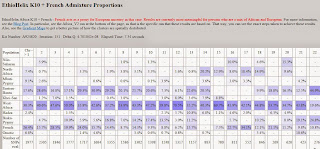Hello everyone and Happy Holidays! I
hope you had a blessed and merry Christmas and that you will have a
blessed and prosperous new year!
Recently, I've had a couple of
conversations on what it means to be “Royal”. Royalty has become
a hot topic in modern culture. Prince William and Catherine,
Dutchess of Cambridge, The recent wedding of Prince Carl Philip and
Sofia Hellqvist and the recent royal nupitals in Monaco have gotten
the whole world it seems, talking about royalty... what it means to
be royal... the pomp and circumstance that comes with the title...
the parties... the traveling... the state events... it seems the
whole world is mesmerized by their glamorous lifestyle. Average,
middle-class people are willing to go into great debt or go to great
extremes to have a look of opulence, which they equate with being
“royal”... to have a dress like Catherine or a hairstyle like
Sofia or your pop star de jour. They will change their mannerisms,
their look and occasionally their speech, all in an attempt to be
like “royalty”. But are all the public events and pomp and
circumstance what it really means to be “royal”?
Out of all the recent royal couples out
there, I think I admire Prince William and Catherine the most, not
because they are royalty, but because they appear to be very down to
earth people. They take care of their children. Charles goes to work
everyday just like any young husband and father. Catherine does her
own grocery shopping, just like any other young wife and mother.
They just happen to be heirs to one of the oldest, successive
monarchies in the western hemisphere and yet doing “common”,
everyday, mundane things, like doing your own grocery shopping,
isn't beneath them... down to earth and in some ways, a little
Christ-like.
Black's Law Dictionary defines “royal”
as, “Of or pertaining to or proceeding from the king in a
monarchical government” [ 6th ed. p. 1330]. In the book
of John, Chapter 17, Jesus “lifted up his eyes to heaven, and said,
Father, the hour is come; glorify thy Son, that thy Son also may
glorify thee:
As thou hast given him power over all flesh, that
he should give eternal life to as many as thou hast given him.
And this is life eternal, that they might know thee
the only true God, and Jesus Christ, whom thou hast sent.
I have glorified thee on the earth: I have
finished the work which thou gavest me to do.
And now, O
Father, glorify thou me with thine own self with the glory which I
had with thee before the world was.” [Jn. 17:1-5] Jesus was asking
God the Father, the First of the trinity, to restore him to the
fullness of his divinity because his work was done.
Christ was and is and will always be
the ultimate royal. He willingly cast off the fullness of his
divinity, to take on flesh in the person of Jesus of Nazareth [Jn.
1:14], to become the son of Mary, a simple young girl and to be
raised by Joseph, a simple carpenter [Lk 1:20]. He allowed himself to
be subjected to all of what it means to be fully human... pain, loss,
need, temptation, hunger, humiliation and ultimately death [Matt.
27:50] and only at the very end, at his most human point, did he ask,
“My God my God, why have you forsaken me” [Matt. 27:46]. Christ
is the ultimate royal in that he was willing to suffer the cross, all
for his people... you and me... for the Kingdom of God.
This Christmas, as I sat in church
singing Christmas carols and looking at the beautiful lights and
decorations, I thought of the day the angel Gabriel announced to Mary
that she would give birth to a savior... I thought about the day
Christ is born in a manger (not a palace)... I thought about the wise
men who traveled to pay tribute to Christ, one of only two acts of
pomp in his life (the other being Palm Sunday) and how simple and
beautiful and awe-inspiring these moments are, and I wonder if we
today have any real understanding of what it means to be royal at
all.





.jpg)
